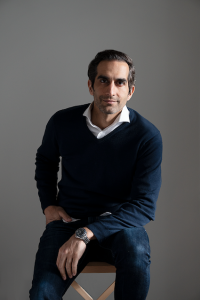(AF) The former head of ESG investing at BlackRock has rubbished the notion of sustainable investing, arguing that it is a “dangerous placebo that harms the public interest”.
Tariq Fancy, who once held the position of CIO for sustainable investing at the world’s largest asset manager, said the thinking behind green bonds and other instruments created to raise capital for “impact” projects is muddled.
While at BlackRock, Fancy helped oversee a sea-change in the company’s approach to ESG investing, with CEO Larry Fink famously declaring in 2017 that profit should no longer be the chief motive of companies and that doing right by society should be. That led to a tidal wave of other corporate leaders eagerly jumping on board to help make the sustainability assets markets among the fastest growing in the world.
Now a green sceptic, Fancy strongly criticises the market approach to challenging global warming, inequality and wealth disparity.
“We had started a trend,” Fancy writes in his latest, most trenchant, essay, entitled The Secret Diary of a Sustainable Investor. “Unfortunately, the view from the inside was different.”
One of the key planks of ESG investing – divesting assets that help fund activities that undermine ESG principles, such as fossil fuels processors – comes under early attack in the essay.

He lambasts the idea that green funds are inherently likely to bring in more returns than regular structures. And he is dismissive of funds that purport to invest only in “responsible” stocks, saying that this gives no more capital to good works because the investors are simply buying stocks that have already been issued.
Other targets for his criticism include the issuance of instruments to fund sustainable initiatives, such as green bonds, which he dismissed as mere money-making gimmicks, and the absence of any common standards to gauge the green credentials of issuers.
Carbon Tax
Fancy’s thesis lies in the belief that getting just some people to change the way they behave in order to bring about greater change is ultimately a non-starter.
“A young person who is concerned about the future and is asked to buy carbon offsets for a student trip might wonder if it matters, especially when wealthy, older people don’t bother with it, and large corporations generally opt out because this kind of good sportsmanship really doesn’t translate into scoring points,” he writes.
Change will only come, Fancy suggests, if governments and their agencies put new obligations on companies to do better. That can be done through carbon taxes and other requirements.
“If you want to change the behaviour of all of the players in the game, you have to change the rules of the game for everyone,” he writes.
Also on AF:
Investors Shrug off Tech Crackdown Concern to Buy Baidu Green Bond






















